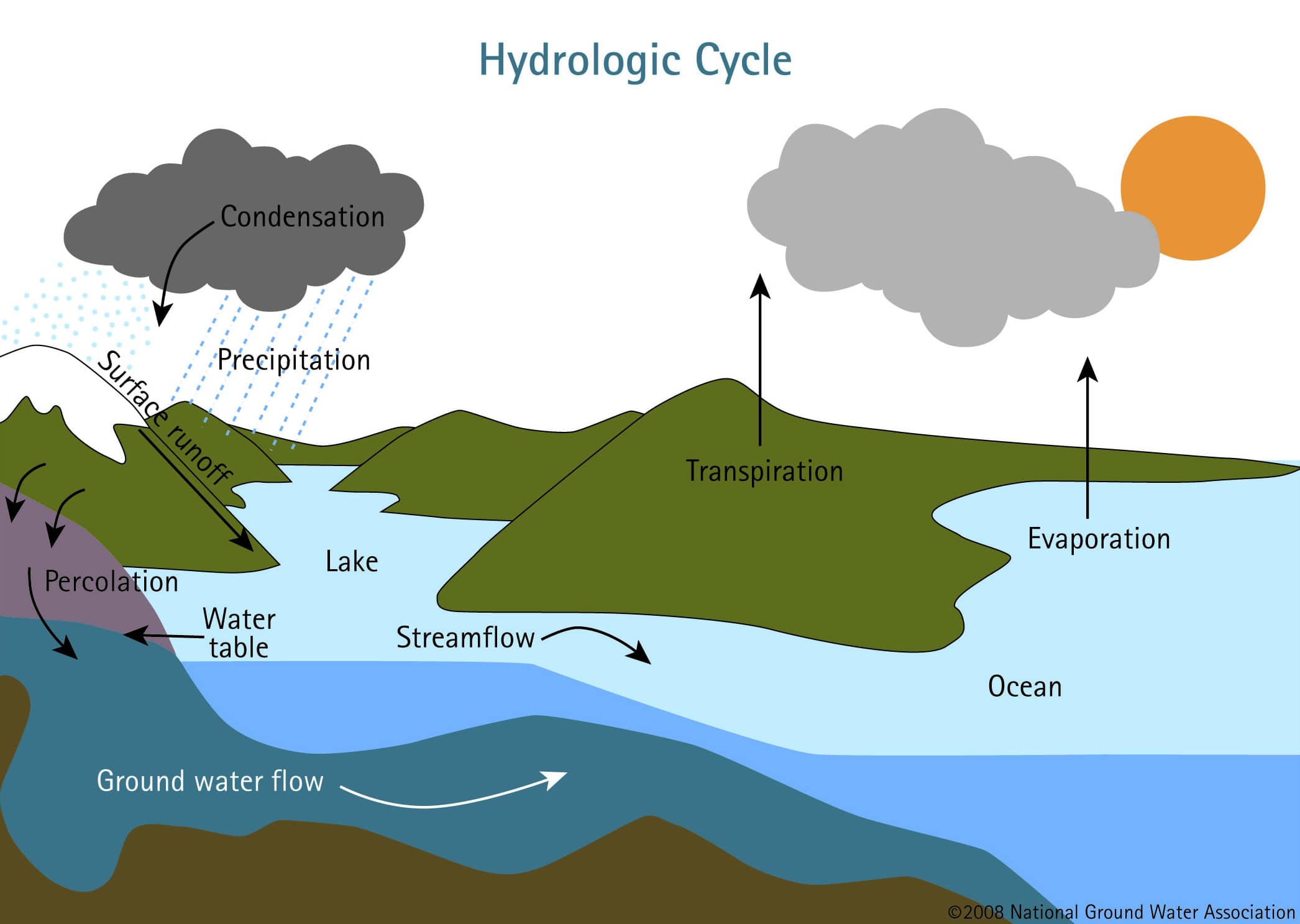Fresh water is an increasingly precious resource around the world. As global leaders work to ensure that humans have safe and sufficient water to drink, to promote agriculture, and for other vital activities, the importance of understanding groundwater grows.
Groundwater is the water that soaks into the soil from rain or other precipitation and moves downward to fill cracks and other openings in beds of rocks and sand. It is, therefore, a renewable resource, although renewal rates vary greatly according to environmental conditions.
It also is an abundant natural resource. Of all the fresh water in the world (excluding polar ice caps), 95 percent is groundwater. Surface water (lakes and rivers) only make up three percent of our fresh water. Scientists estimate U.S. ground water reserves to be at least 33,000 trillion gallons-equal to the amount discharged into the Gulf of Mexico by the Mississippi River in the past 200 years.
Groundwater is naturally filtered by the earth that holds it. It can, however, be contaminated by pollutants that come into contact with the earth’s surface. Care should be taken at the household, local, national, and global levels to protect ground water from pollutants.

The Making of Groundwater
Water from precipitation follows three main paths:
- Some water evaporates from the earth’s surface into the air or is breathed out by vegetation and returns to the earth’s atmosphere. Some water runs off into streams, lakes, or oceans.
- Some infiltrates into the ground. There, it follows various flowpaths and can travel to the surface as springs, move into surface water, or recharge ground water deeper in the earth.
- Groundwater can move into large underground natural storage areas known as aquifers and/or artesian wells.
Get more information on the hydrologic cycle.
As groundwater moves through the ground, it dissolves some of the minerals that it comes in contact with. Those dissolved minerals give ground water its chemical character or quality. In many cultures throughout the world, that specific character is appreciated by thirsty consumers as much as the taste and character of a favorite cola, beer, or wine. Many bottled waters come from groundwater reserves.
Groundwater and Private Water Wells
Frequently, private water wells tapping groundwater resources can provide the highest quality water available to homeowners and businesses. Deep drilled wells recharge themselves, and can provide a constant, steady supply of water that is not easily impacted by dry weather conditions.
Private water wells also allow consumers to take more control of their water quality. Well owners can take steps to protect their groundwater from contaminants and can hire trained professionals to conduct regular maintenance checks and water quality tests.


